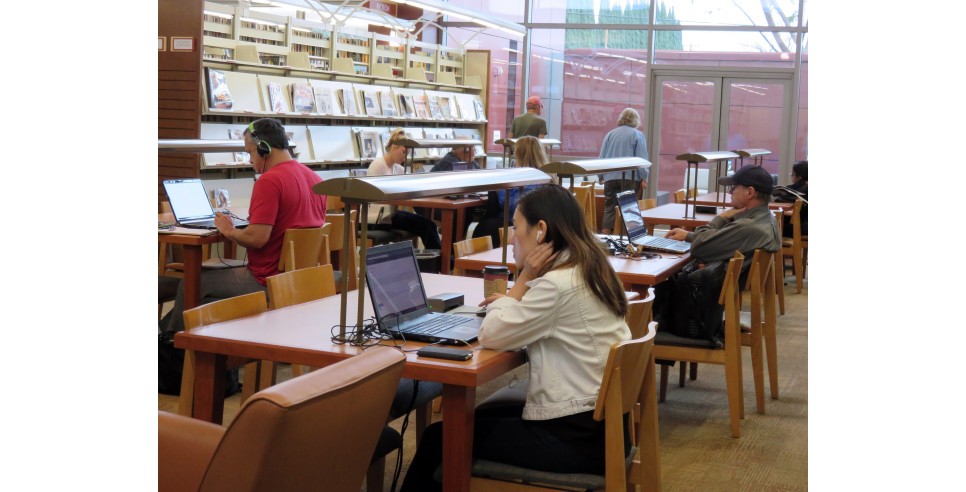
When people think of libraries, they tend to think of only books, but libraries offer a wealth of information and resources that far supersede our wildest imagination. Amazingly enough, these resources are offered for free. With the exception of paying for copies or fax transmission, all libraries offer a wide range of *free* services, including tutorial programs to learn a vast array of language, job and computer skills.
For people who are seeking jobs, libraries offer free computer use and access to the internet. Job searcher are also able to gain access to databases, job banks and information about potential employers. Many libraries offer assistance with building a resume, completing job applications and conducting job searches.
Taking a random look at libraries throughout America, here is a peek into job resources that are offered in five library systems in Bend, Oregon; Boise, Idaho; Laramie County, Wyoming; Murfreesboro, Tennessee; and Bangor, Maine.
Serving cities and towns around Bend, Oregon, the Deschutes Public Library gives their patrons a soup to nuts Job tip sheet that provides all of the essential ingredients to get started in your job search. Other learning tools provide online classes and professional courses designed to help you brush up on old skills or learn the latest in technology and business. Other helpful tools include a Job & Career Accelerator, a hodgepodge of powerful tools and expert guidance to help you find a great job. Please note that you must be a library patron in order to access this database.
The Boise Public Library in Boise Idaho offers resources for jobs and careers. Their Cypress Resume Database allows patrons to create resumes in three easy steps. One database, the Mergent Intellect, provides patrons with demographics, consumer data, and both national and global industry information. Two programs, GCF Learn Free and the LearningExpress Library, allow patrons to learn basic skills in math and computer training as well as tutorials in standardized tests for college admission. Study guides and practice tests are available for those who want to pursue careers in government, law enforcement, education and the healthcare industry.
The Laramie County Library in Wyoming has established its own business center L2B (Library to Business) with two separate departments, one for entrepreneurs seeking to start a business, and the other for patrons looking for a new job. L2B connects patrons with local and regional development agencies to teach patrons new skills and to help them create a business network. In addition to monthly classes, L2B offers Free one-on-one consultations with HR experts and exclusive online resources.
Heading south to the Rutherford County Library in Murfreesboro, Tennessee brings its own adventure into a world of job and HR resources by providing a gateway to employment, resources and benefits. Aside from offering career resources, this library also maintains a Local Jobs Wire that includes job openings near Murfreesboro. Going beyond offering the traditional tutorial and assistance to help patrons to build a resume, coaching tips are also offered so you can practice being interviewed!
In the far northeast corner of the country, the Bangor Public Library in Maine offers an official career center with a jobs bank that spans from local jobs to jobs anywhere in America. Access is provided to the Maine Government website and Job Central that is result of an alliance with National Labor Exchange.
In all of my research, I have not yet found a public library that does NOT offer resources for job seekers. Many libraries have specialty librarians on staff who are a go-to resource for their knowledge about what is going on job-wise in the local community. Having access to job resources appears to be routine fare offered by every public library. See what the libraries offer to the job seeker in your community!
Public libraries are central to every community. All are welcome in the public library regardless of faith, ethnicity, race, gender, age, ability, or economic status. Keep in mind, that most libraries still require face coverings for service and maintaining six feet of social distancing between patrons.








